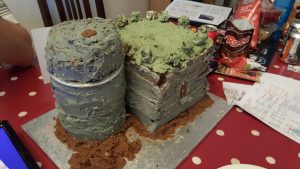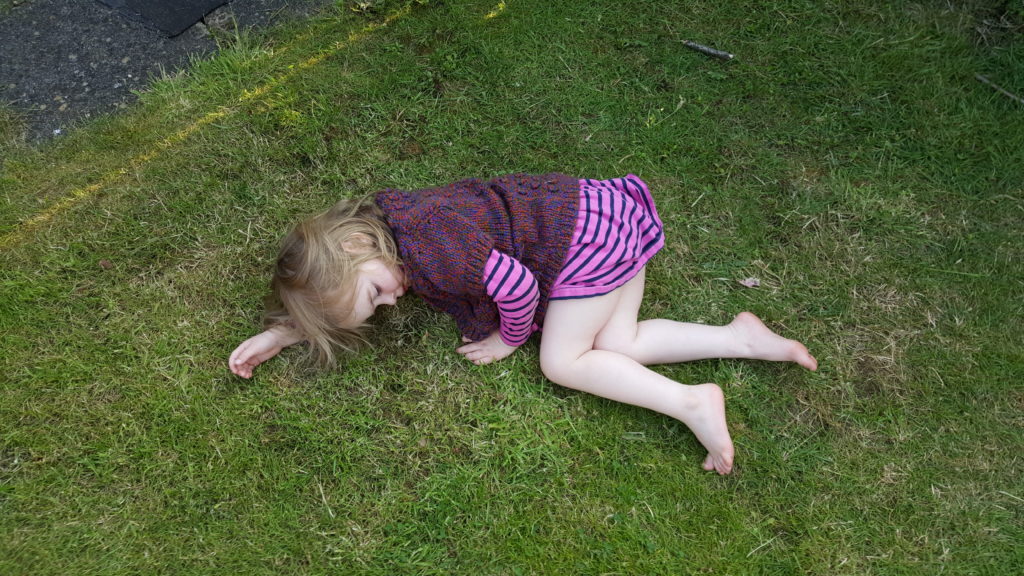How to find a wonderful idea
This is a repost promoting content originally published elsewhere. See more things Dan's reposted.
This is a repost promoting content originally published elsewhere. See more things Dan's reposted.
This is a repost promoting content originally published elsewhere. See more things Dan's reposted.
His nuclear research helped a judge determine that former Russian spy Alexander Litvinenko had been assassinated – likely on Putin’s orders. Just months after the verdict, the scientist himself was found stabbed to death with two knives. Police deemed it a suicide, but US intelligence officials suspect it was murder…
This checkin to GLR8Y7C0 Road to Parrog reflects a geocaching.com log entry. See more of Dan's cache logs.
An easy find while taking my nephew out for a morning walk in his pushchair. Poor little fella fell asleep before we got to the GZ, though, knocked out perhaps by this morning’s early heat! Nice and quiet this early on a Sunday: not a muggle in sight.
Me and mine are staying just down the road for a holiday – not part of last night’s noisy wedding party, though!
This is a repost promoting content originally published elsewhere. See more things Dan's reposted.
This checkin to GLR8CM1D The Lone Singer reflects a geocaching.com log entry. See more of Dan's cache logs.
A quick and easy find on a walk to the shops while visiting my partner’s husband’s grandmother (who lives just around the corner)! Lovely day for it!
Suspect that the vague coordinates plus the description would probably be enough for a non-premium member to find this, by the way! Just so you know!

This is a repost promoting content originally published elsewhere. See more things Dan's reposted.
Something that jumped at me, recently, was a rendering dilemma that browsers have to encounter, and gracefully handle, on a day-by-day basis with little, to no, standardization.
Take the following page for example. You have 4 floated divs, each with a width of 25%, contained within a parent div of width 50px. Here’s the question: How wide are each of the divs?
The problem lies in the fact that each div should be, approximately, 12.5px wide and since technology isn’t at a level where we can start rendering at the sub-pixel level we tend to have to round off the number. The problem then becomes: Which way do you round the number? Up, down, or a mixture of the two? I think the results will surprise you, as they did me…
This is a repost promoting content originally published elsewhere. See more things Dan's reposted.
Some people think that usability is very costly and complex and that user tests should be reserved for the rare web design project with a huge budget and a lavish time schedule. Not true. Elaborate usability tests are a waste of resources. The best results come from testing no more than 5 users and running as many small tests as you can afford.
In earlier research, Tom Landauer and I showed that the number of usability problems found in a usability test with n users is:
N (1-(1- L ) n )
where N is the total number of usability problems in the design and L is the proportion of usability problems discovered while testing a single user. The typical value of L is 31%, averaged across a large number of projects we studied. Plotting the curve for L =31% gives the following result…
This is a repost promoting content originally published elsewhere. See more things Dan's reposted.
Software engineers go crazy for the most ridiculous things. We like to think that we’re hyper-rational, but when we have to choose a technology, we end up in a kind of frenzy — bouncing from one person’s Hacker News comment to another’s blog post until, in a stupor, we float helplessly toward the brightest light and lay prone in front of it, oblivious to what we were looking for in the first place.
This is not how rational people make decisions, but it is how software engineers decide to use MapReduce…
This is a repost promoting content originally published elsewhere. See more things Dan's reposted.
This is a repost promoting content originally published elsewhere. See more things Dan's reposted.
Theresa May looks set to launch wide-ranging internet regulation and plans to fundamentally change how technology works despite not having won a majority.
In the speech in which she committed to keep governing despite calls to stand down, the prime minister made reference to extending powers for the security services. Those powers – which include regulation of the internet and forcing internet companies to let spies read everyone’s private communications – were a key part of the Conservative campaign, which failed to score a majority in the House of Commons.
In the speech, given in Downing Street after losing her majority but still looking to form a government, she laid out a series of plans that she hopes to carry out at what she called a “critical time for our country”…
For the last few months, I’ve been GMing a GURPS campaign (that was originally a Warhammer Fantasy Roleplay 1st-edition campaign, in turn built upon a mixture of commercially published and homegrown modules, including, in turn, an AD&D module…) for a few friends.
So far, it’s included such gems as a player-written poem in a fictional language, another player’s drawing of the most-cinematic action sequence they’ve experienced so far… and the opportunity, during a play session that coincided with a player’s birthday, to explain the layout of a ruined tower by presenting them with a cake baked into the shape of the terrain.

If you’re interested in what we’ve been up to, the campaign has it’s own blog where you can read about the adventures of Newman, Bret, Lythil, Keru, and (the late) Sir Bea.
But mostly I wanted to make this post so that I had a point of context in case I ever get around to open-sourcing some of the digital tools I’ve been developing to help streamline our play sessions. For example, most of our battle maps and exploration are presented on a ‘board’ comprised of a flat screen monitor stripped of its stand and laid on its back, connected via the web to a tool that allows me to show, hide, or adapt parts of it from my laptop or mobile phone. Player stats, health, and cash, as well as the date, time, position of the sun as well as the phases of the moons are similarly tracked and are available via any player’s mobile phone at any time.

These kinds of tools have been popular for ‘long-distance’/Internet roleplaying for years, but I think there’s a lot of potential in locally-linked, tabletop-enhancing (rather than replacing) tools that deliver some of the same benefit to the (superior, in my opinion) experience of ‘proper’ face-to-face adventure gaming. Now, at least, when I tell you for example about some software I wrote to help calculate the position of the sun in the sky of a fictional world, you’ll have a clue why I would do such a thing in the first place.
This month I shared a story about how playing with our toddler forced upon me a new way of thinking about my grief over my dad’s death and raved against AMP, Google’s poisonous new Web-ish technology.
I reshared posts about rule-based password security validation and disallowing the pasting of passwords into forms. I also shared a magic-themed Channelate comic.
Posts marked by an asterisk (*) are referenced by the summary above.
This is a repost promoting content originally published elsewhere. See more things Dan's reposted.
No matter how prepared you think you are for the questions your toddler might ask (and the ways in which they might go on to interpret your answer), they’ll always find a way to catch you off guard. The following exchange with our little one began last weekend in the car:

Her: “I read the Beano Annual at Grandtom’s house.” (Grandtom is what she calls Ruth‘s father – her maternal grandfather.)
Me: “Oh? Did you like it?”
Her: “Yes. Did you have the Beano Annual when you were a little boy?”
Me: “Yes: I would sometimes get one for Christmas when I was little.”
Her: “Who gave it to you?”
Me: “My mummy and daddy did.”
Her: “Your mummy is Nanna Doreen.”
Me: “That’s right.”
Her: “Why haven’t I met your daddy?”

That’s a question that I somehow hadn’t expected to come up so soon. I probably ought to have guessed that it was on its way, given her interest in her extended family lately and how they’re all connected to one another, but I’d somehow assumed that it’d have come up organically at some point or another before her curiosity had made the connection that there was somebody clearly missing: somebody whom she’d heard mentioned but, inexplicably, never met.
Me: “My daddy died, a couple of years before you were born. He was climbing a mountain one day when he had a nasty accident and fell off, and he died.”
Her: “…” (a thoughtful pause)
Me: “Are you okay?”
Her: “How many birthdays did he have?”
Me: “Fifty-four. That’s a bigger number than you can count to, I think!”
Her: “How many birthdays will I have?”
Wow, this went further than I expected, very quickly. Obviously, I want to be open about this: the last thing I want is to introduce a taboo, and I’m a big believer in the idea that on I’m suddenly conscious of the fact that she’s clearly close to a minor existential crisis, having for possibly the first time connected the concepts of age and death. And, of course, I’m trying to translate my thoughts into ideas that a toddler can follow every step of the way. While simultaneously trying to focus on driving a car: she knows how to pick her timing! Okay…
Me: “Nobody knows for sure, but you’ll probably get lots and lots: seventy, eighty, ninety… maybe even a hundred birthdays!”
Her: “Then I’ll have a hundred candles.”
Me: “That’s right. Do you think you could blow out a hundred candles?”

So far, so good. Knowing that, like most toddlers, ours has a tendency to make some new discovery and then sit on it for a day or two before asking a follow-up question, I briefed Ruth and JTA so that they wouldn’t be caught too off-guard when she started telling them, for example, what she’d like for her hundredth birthday or something.
And all was well until yesterday, when we were laying in the garden under the recent glorious sunshine, playing a game that involved rolling along the lawn and back and bumping into one another in the middle, when she stood up and announced that she’d like to play something different.
Her: “Now we’re playing the die game.”
Me: “Oh…kay. How do we play that?”
Her: “We’re going to go up a mountain and then fall off.”
Me: (following her in a stomp around the garden) “Then what do we do?”
Her: “We die.” (mimes falling and then lies very still)

And so that’s how I came to spend an afternoon repeatedly re-enacting the circumstances of my father’s death, complete – later on, after Ruth mentioned the air ambulance that carried his body down from the mountain – with a helicopter recovery portion of the game. I’ve role-played some unusual games over the years, but this one was perhaps the oddest, made stranger by the fact that it was invented by a three year-old.
Toddlers process new information in strange (to adults) ways, sometimes.
This is a repost promoting content originally published elsewhere. See more things Dan's reposted.
Of the many, many, many bad things about passwords, you know what the worst is? Password rules.
If we don’t solve the password problem for users in my lifetime I am gonna haunt you from beyond the grave as a ghost pic.twitter.com/Tf9EnwgoZv
— Jeff Atwood (@codinghorror) August 11, 2015
Let this pledge be duly noted on the permanent record of the Internet. I don’t know if there’s an afterlife, but I’ll be finding out soon enough, and I plan to go out mad as hell…